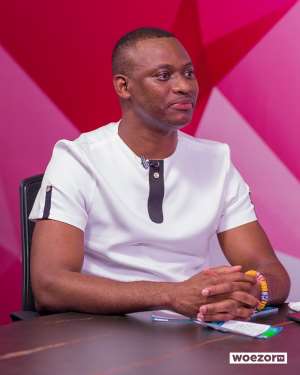
Galamsey, the shadowy underbelly of Ghana’s mining sector, remains one of the nation’s most pressing and consequential challenges. Despite the promises of successive governments, the illegal mining industry continues to devastate landscapes, poison water bodies, and undermine the social fabric of Ghanaian communities. After years of rhetoric and failed interventions under President Akufo-Addo, the specter of galamsey looms even larger.
Now that President John Dramani Mahama returns to the helm, Ghanaians are both hopeful and cautious. The continuation of ineffective policies and half-hearted enforcement will only deepen national disillusionment. If Mahama does not deliver tangible progress, the public disappointment this time will be far more profound.
The Akufo-Addo Administration: Rhetoric Versus Reality
In 2017, President Nana Addo Dankwa Akufo-Addo declared the fight against galamsey a “national emergency.” The move sparked optimism that genuine reform was finally on the horizon. The launch of Operation Vanguard, a joint police-military task force, was presented as a bold first step. High-profile arrests followed, excavators were burned, and numerous press briefings assured Ghanaians that decisive action was underway.
Yet, behind the headlines, the reality on the ground told a different story. Galamsey operations not only persisted but intensified. Our major rivers like the Pra, Ankobra, and Offin, once lifelines of rural economies, have turned toxic and choked with silt, reflecting environmental degradation on a massive scale. The infamous case of Aisha Huang, dubbed the “Galamsey Queen,” exposed glaring gaps in the government’s enforcement capacity. Despite multiple arrests and deportations, her repeated reappearances highlighted a deeply flawed system incapable of maintaining integrity or upholding justice.
More troubling still was the growing perception that political insiders, across party lines, were themselves complicit in the galamsey network. These suspicions turned the anti-galamsey campaign into what many saw as a mere public relations exercise. By the end of Akufo-Addo’s presidency, the verdict was unavoidable: the fight had failed. Ghanaians were left with polluted rivers, sick communities, and a deepened mistrust in government.
The Stakes for Mahama: A Nation at a Crossroads
President Mahama assumes office at a defining moment. The mistakes of the past cannot be repeated. If the same failed strategies are recycled, Ghana risks not only environmental collapse but also a further erosion of public trust in government.
The stakes are existential. Galamsey is not simply an environmental issue. It is a national emergency that strikes at the heart of Ghana’s economy, health, and future. Driven by poverty and protected by impunity, illegal mining destroys forests, contaminates water with mercury, and renders once fertile lands barren. The long-term consequences are staggering: chronic illness, birth defects, and the slow death of communities that once thrived.
For President Mahama, the goal is not merely to outperform his predecessor. It is to restore confidence in the state’s capacity to act decisively and ethically. Another round of empty promises will only fuel further public disillusionment. The people are watching. And this time, the expectations are higher.
Lessons from the Past: What Failed and Why
Several factors contributed to the failure of Akufo-Addo’s anti-galamsey efforts. First, there was a lack of consistent political will. Grand pronouncements were not backed by sustained and accountable action. Enforcement bodies were underfunded, sometimes compromised, and vulnerable to bribery and interference. Confiscated equipment mysteriously vanished or reappeared at new mining sites, fueling public outrage.
Second, the strategy relied too heavily on militarization. Force without community engagement created fear but not compliance. For many rural communities, galamsey remains a primary source of income. Crackdowns, unaccompanied by viable alternatives, only push the activity further underground and make it harder to regulate.
Lastly, the root causes of galamsey were never seriously addressed. Widespread unemployment, lack of access to credit, and systemic neglect of rural development all contributed to the problem. Sustainable solutions require more than law enforcement. They demand a long-term vision that includes economic empowerment, education, and inclusion.
Mahama’s Opportunity and Responsibility
President Mahama now has a unique opportunity to reset the national conversation. But this will require bold leadership and honest reflection. First, his administration must demonstrate zero tolerance for corruption. Political actors, regardless of affiliation, must be held to the same standards as any citizen. No sacred cows. No backroom deals.
Second, his government must engage local communities as partners. Residents of galamsey-affected areas must be consulted and involved in policy design and implementation. Their concerns, insights, and needs are essential to crafting lasting solutions.
Third, alternative livelihoods must be made a top priority. This means supporting regulated small-scale mining, investing in sustainable agriculture, expanding vocational training, and improving access to education. Without these measures, the cycle of poverty and environmental destruction will persist.
What Ghanaians Expect and Deserve
Ghanaians are watching closely. They remember the disappointments of the recent past, but they have not given up hope. What they demand now is action- measurable, transparent, and sustained. Cleaner rivers. Revived forests. Stronger institutions. And above all, a future that does not sacrifice health and dignity for short-term gain.
If President Mahama delivers, he will not only redeem his own legacy but also set Ghana on a path toward genuine sustainability. If he fails, the damage will extend far beyond politics. It will be felt in the poisoned streams, the lost livelihoods, and the broken trust of a nation that has waited too long for real leadership.
Ultimately, the battle against galamsey is more than a policy issue. It is a moral test of leadership, a referendum on whether Ghana’s future will be dictated by expediency or by principle. The time for speeches is over. The moment for bold and accountable action has arrived. Ghana’s future depends on what happens next, not on promises, but on performance.


